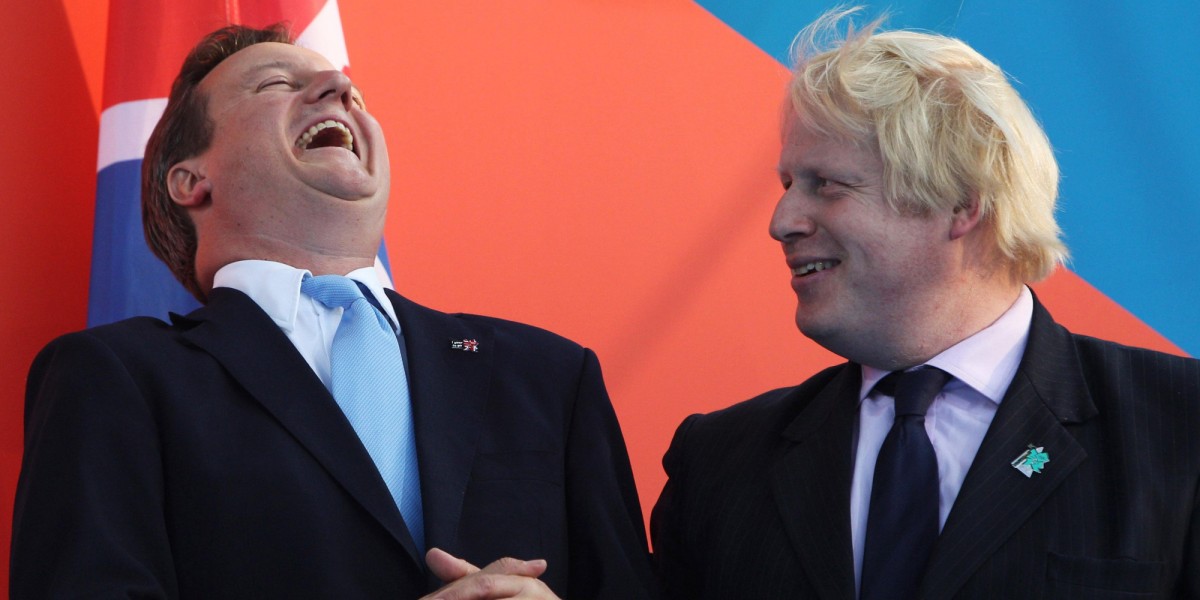
Earlier this month, British Chancellor Philip Hammond deliver his first spring budget but instead of "working for all," as promised by Prime Minister Theresa May, the plan forces a further program of austerity benefitting the richest while punishing the poor.
Among the biggest controversies of the spring budget was the announcement that tax will be increased for the self-employed, meaning cabbies, plumbers, gardeners and the like will have to pay significantly more in tax. Hammond plans to raise national insurance contributions (NICs) for the self-employed from 9 percent to 11 percent between 2018 and 2019.
Analysis from the Institute of Fiscal Studies shows that the average income loss for self-employed workers making £35,000 a year will be £120 in the first year, and £388 in the second year. The loss could be as much as £430 a year for higher earning self-employed workers.
The number of self-employed people in Britain has grown significantly in recent years, with an estimated 4.8 million, or 16 percent of the working population, earning most of their income through self-employment. The biggest growth in self-employment is among lower earners.
The Tories’ alleged rationale for raising the NICs is to “level the playing field” so that national insurance contributions are more in line with those who are employed. But news that self-employed workers may have to pay considerably more in NICs has been widely rejected due to the fact that self-employment comes with significantly less benefits.
For example, the self-employed are not entitled to annual holiday pay or sick pay, and do not benefit from an employer paying into a workplace pension. Work can also get cancelled at any moment, without compensation, meaning the self-employed have less job security.
Bigger Fish are Being Let off the Hook
On top of this, one of the strongest arguments against the NICs self-employment rise is that “the bigger fish are being left off the hook.” Critics say the real winners in the scheme are the companies that use self-employed contractors and individuals to carry out work.
Recent years have seen a rise in the number of employers relying on self-employed staff and contractors. Those companies benefit by avoiding many of the obligations associated with employing people, and save vast amounts of money.
As Justin Desyllas, a self-employed graphic designer from Bristol, told The Guardian, “The business saves all round while the employee gets hit again. It’s a typical, quick and dirty policy to raise some funds and as usual it comes at the expense of the easy target – the individual – while letting the businesses that exploit these conditions get away with it.”
Christopher Tongue, a 61-year-old self-employed gardener from Cheshire, in the North West of England, told Occupy.com why he is unhappy with the Tories’ budget manifesto that raises taxes on the self-employed.
“What I object to is the fact a lot of people in Britain have been forced into self-employment because the jobs aren’t there. At my age, I thought I’d make a go of it on my own and set up my own gardening business," Tongue said. "From the government’s point of view, we [self-employed] are no burden on the country. We aren’t entitled to the fringe benefits of a ‘factory’ or ‘office’ job, such as sickness pay, so when you’re sick you earn nothing.
“In principle, I think everybody should pay the same, as long as they’re getting the same, but the self-employed definitely aren’t getting the same benefits as the employed. It just shows you how ungrateful the government is for the entrepreneurs who set up on their own without any help and kept their unemployment figures looking a lot rosier. It’s a black mark against the Tory ethos of nurturing entrepreneurialism,” he added.
Meanwhile, the Chancellor announced in the spring budget that the corporation tax will be cut. For the 2018-19 tax year, corporation tax will be cut to 19 percent and decreased again to 17 percent in 2020. The cut will mean Britain has the lowest corporate tax rate in the G20.
The government argues the cut to corporation tax is designed to attract investment in Britain, especially in light of the uncertain Brexit environment. But critics of the proposed cuts to corporation tax, as well as cuts in inheritance tax, are urging Hammond to rethink those moves in order to tackle what dramatic rising inflation in Britain.
Austerity Will Continue to Bite
Aside from the tax rise for the self-employed and cuts to corporate and inheritance tax, low income families relying on benefits to get by will continue to feel the squeeze as the Tory government continues a freeze on most major benefits.
Set against the rising cost of living, benefit freezes and continued austerity are already taking a serious toll on the country's poorest. Research by the Resolution Foundation says the spring budget shows a “double whammy” for lower income working families.
The analysis finds that real wages could start to fall by the end of 2017 as inflation continues to rise, while the continued welfare freeze will remove some £3.6 billion more than expected from many of the poorest households in Britain by 2020. Consequently, those with the least will continue to foot the bill for unremitting austerity measures and unfair tax fluctuations.
Following Philip Hammond’s spring budget speech, the opposition leader Jeremy Corbyn attacked the government, accusing Hammond of “utter complacency” and saying the budget demonstrates the “appalling priorities of this government.”
“This is a chancellor and a government who are not only not on the side or workers. They’re not even on the side of taxpayers who pick up the bill for low pay and insecure work,” Corbyn told Parliament.
Britain’s Conservative government may sound steadfast in its promise to create a fairer country that "works for everyone," but as the recent evidence suggests, more injustice and hardship lie ahead for the people.
3 WAYS TO SHOW YOUR SUPPORT
- Log in to post comments












